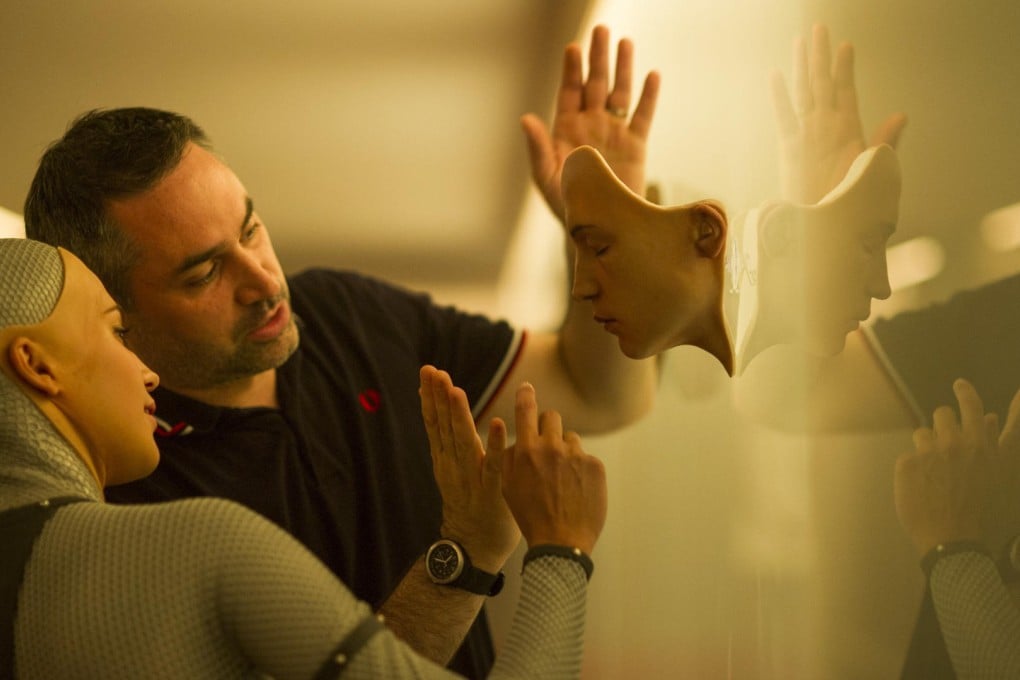Alex Garland's Ex Machina is a man-vs-machine tale that sides with the machines
In his directorial debut, Alex Garland has crafted a sci-fi drama that is powered by human emotion

Three characters trapped in a house debating human consciousness may not sound like the most exciting backbone for a movie. Yet in Ex Machina, the directing debut for writer Alex Garland, that dry-sounding concept becomes the basis for a sci-fi thriller of sleek, gleaming surfaces and impressive intellectual depth, somehow managing to feel modern, futuristic and classical all at once.
"The challenge is … how do you make a movie which is basically a film of ideas?" Garland says. "And then making those ideas accessible and dramatically interesting and trying to understand them."
The film begins with young computer programmer Caleb (Domhnall Gleeson) winning an internal company contest for a private visit with reclusive tech industrialist Nathan (Oscar Isaac) - think Mark Zuckerberg plus Steve Jobs plus Howard Hughes - on his remote nature preserve estate. There, Caleb discovers that Nathan has created Ava (Alicia Vikander), a lifelike and beautiful robot with an artificial intelligence strengthened with data from the company's online search engines.
Just because something is science fiction doesn’t make it just spaceships. In my head, they tell you more about people than they do about machines
What begins as Caleb administering a series of tests designed to determine whether Ava has gained sentient self-awareness becomes a twisting game of wills and wits as the three characters battle for dominance and survival.
"One of the big things for me to figure out for my character was what's he doing on purpose, what's he accidentally doing, what's he in control of, what is he not in control of and then feeling all that," Isaac says. "We'd talk about the script as a whole and look at it from every angle to make sure it sticks together."
Garland adds: "There's a lot of misdirection in the film."
The London-born Garland, 45, has had an intriguing path to his first directing credit. After his debut novel, the backpacking adventure The Beach, was adapted into a movie, he reinvigorated the zombie story with his first screenplay, 28 Days Later. Alongside two more novels, he followed this up with scripts to the space drama Sunshine and adaptations of the novel Never Let Me Go and comic Dredd. Taken together, it's a consistently inventive body of work, full of big ideas and a complicated view of technology's interface with society.